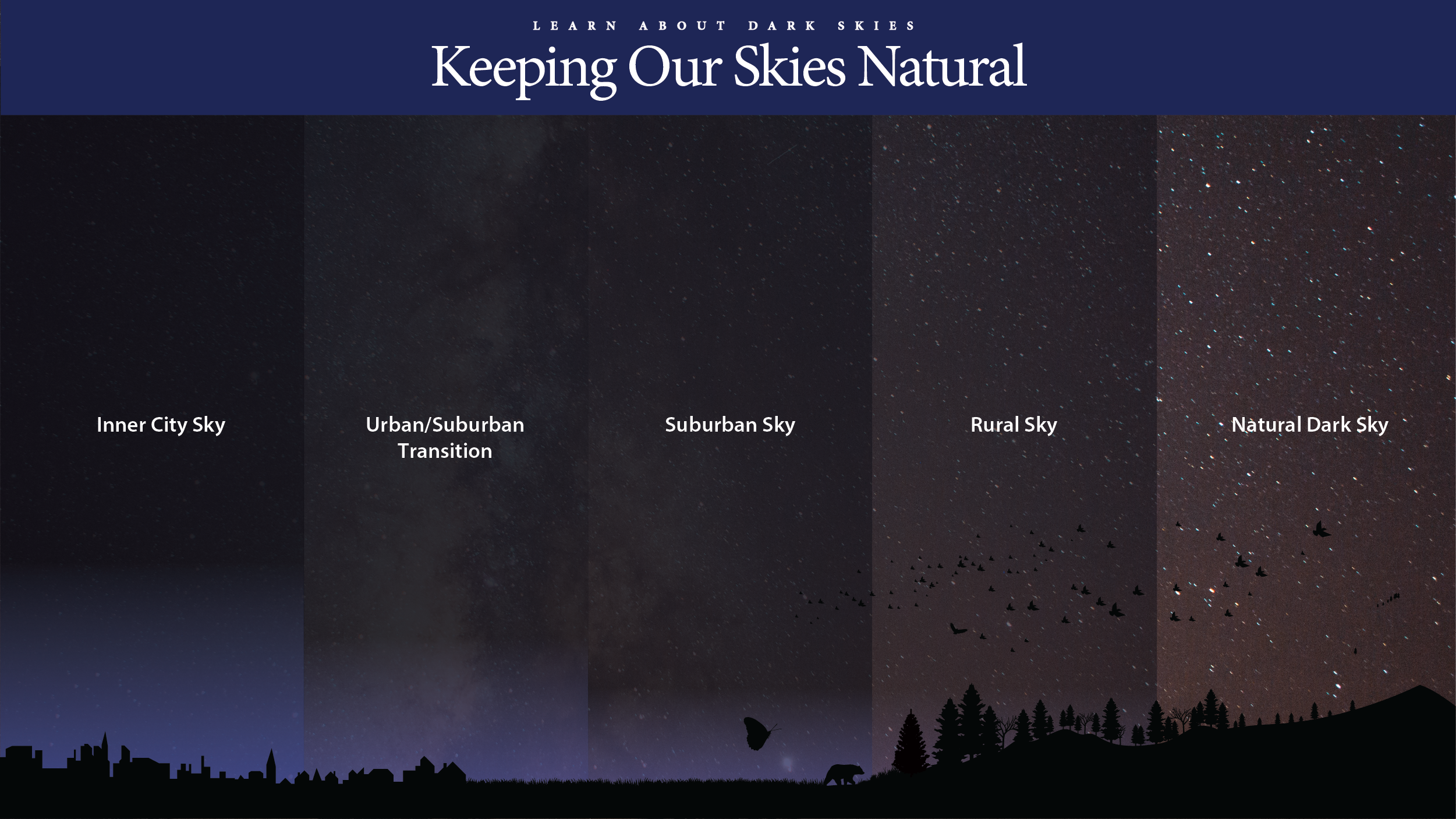Wildlife and People Need Dark Skies
Light pollution – or too much artificial light where it is not wanted or needed – can affect our health, the environment, wildlife, and our opportunity to find awe in our natural night sky. For many wild animals, shifting natural light triggers when to sleep, eat, migrate, hunt, and even reproduce. Artificial light is also a hazard to migrating wildlife. Birds can be led off-course or collide with windows of illuminated buildings.
Dark skies are important for many reasons. The International Dark-Sky Association (IDA) was founded in 2001 to help communities, parks, and protected areas preserve dark sites through responsible lighting policies and public education. The IDA lists many sites across Colorado as International Dark-Sky Association designated sites. Jackson Lake State Park in Morgan County is one of the only state parks, with Ridgeway State Park currently in the process of accreditation. The International Dark Sky Places (IDSP) program consists of roughly 150 certified IDSPs around the world, 95 of which are located in the United States and 74 of those are west of the Mississippi River.
There are many specific requirements for achieving this accreditation regarding the type of fixtures to use; they must be fully shielded lighting amenities, have a certain color temperature of bulbs, and should only light things required for safety. Other benefits of IDSA designation to a park or community include becoming dark sky friendly and providing many benefits for wildlife, as well as reducing energy consumption.
Visit https://www.darksky.org/ to learn more about Dark Skies.
List of International Dark-Sky Designated Sight in Colorado
Parks
Black Canyon of the Gunnison NP
Dinosaur National Monument
Great Sand Dunes National Park and Preserve
Mesa Verde National Park
Jackson Lake State Park
Curecanti National Recreation Area
Communities
Norwood, Colorado
Westcliffe, Colorado
Silver Cliff, Colorado
Nucla, Colorado

